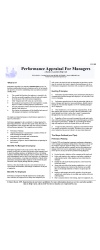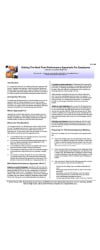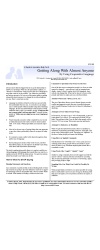Attempts To Win an Argument Often Backfire and Create Poor Communication
You may be familiar with the phrase “For every action there is an equal and opposite reaction”, taken from the world of physics. The same principle applies to communication, and arguing or advocating a position. When you make an extended attempt to win an argument (advocate a position), you are not focusing on communicating with someone, but communicating AT someone, for the purpose of changing their opinions, or changing their minds about an issue.
In itself that’s not a horrible practice, but what happens is that there is a point where the more you push in an argument, the more you will generate resistance to your message. This happens for several reasons.
First, people will almost automatically resist or rebel against attempts to change them when they have not requested you do try. The more you push, the more they will resist, and that means, they will stop listening, and mobilize their own responses, so in effect, they don’t hear you anymore.
Second, people also resist when they feel that your sole concern in talking with them has to do with talking at them — lecturing, preaching and so on. When you use extended attempts to win an argument, the other person feels you are not genuinely interested in hearing them, and that causes them to start shutting you out.
Third, when you argue, and you get emotionally involved and attached to the argument, your ego comes into play, and there’s a tendency to try to win with almost any points you can come up with. The longer you argue, and stretch to make your point, the more likely your argument will become less compelling.
Arguing a point is not a mortal sin, but trying to hard to win creates a lot of interpersonal problems.






